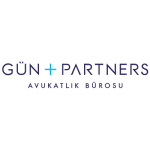After many years of deliberation, a majority of the EU member states accepted the Agreement on a Unified Patent Court (the Agreement) in 2013 and it entered into force on June 1 2023.
The objective of the Agreement was to ensure speed and uniformity in proceedings by establishing a single competent court for the settlement of disputes relating to European patents and European patents with unitary effect.
The Unified Patent Court (UPC) was envisaged as a common court for the member states party to the Agreement. And thus the UPC became part of the judicial system of those states and was authorised to resolve disputes concerning European patents with unitary effect and European patents granted by the EPO.
A fundamental question regarding the UPC’s scope
As the scope of the jurisdiction of the UPC includes European patents granted by the EPO, certain questions inevitably arise. For example, will the countries that are party to the European Patent Convention but cannot be a party to the Agreement (such as Turkey, the UK, and Switzerland) be affected by the decisions of the UPC concerning European patents?
Although the UPC is a competent court for the resolution of disputes related to European patents, it would not be contrary to the logic of law to discern that the countries party to the European Patent Convention but not to the Agreement should be excluded from the proceedings of the court.
As discussed in a previous article by Gün and Partners, The Unified Patent Court: how will it affect Turkey?, a decision of the UPC on the infringement or invalidity of a European patent will not be binding before the Turkish courts or the Republic of Turkey, in accordance with the principle of territoriality of the jurisdiction of the courts.
However, in the case of European patents, which are one of the two main types of patents falling within the jurisdiction of the UPC, the EU did not want the court to limit its jurisdiction to the countries party to the Agreement, arguing that as the patent in question is a European patent, then the jurisdiction of the UPC should be able to extend to all countries in which a particular European patent is valid, even if the country is not a party to the Agreement. Although there is no such provision in the Agreement, the EU legislation that was needed to integrate the UPC into the EU system brought such an extended jurisdiction.
Amendment of the Brussels IA regulation
Since the UPC, as a common court for the member states party to the Agreement, is not subject to Regulation (EU) No. 1215/2012 of the European Parliament and of the Council on Jurisdiction and the Recognition and Enforcement of Judgments in Civil and Commercial Matters (Brussels IA), Regulation (EU) No. 542/2014 of the European Parliament and of the Council of 15 May 2014 (Brussels IB) amended the Brussels IA regulation and integrated the UPC into the EU judicial system.
Article 71b, which was introduced as a result of the Brussels IB amendment, regulates the jurisdiction of the common court with its first paragraph and states that where the courts of a member state party to the Agreement would have jurisdiction in a matter regulated by the Agreement, the common court would also have jurisdiction. Hence, it has become clear that the UPC shall be a competent court in all cases where the national courts of the EU member states party to the Agreement are competent in matters regulated by the Agreement.
Through Article 71b, paragraph 3, of the Brussels IB regulation, ‘property-based subsidiary international jurisdiction’ has been granted to the UPC over defendants who do not have their domicile in an EU member state.
If certain conditions are met, the UPC has jurisdiction over damages arising from the infringement of a European patent in a non-EU member state.
Pursuant to Article 71b, paragraph 3, of the Brussels IB regulation, the UPC may, in an action brought by the owner of a European patent against a defendant who is not domiciled in an EU member state, rule that damages suffered within and outside the EU as a result of the patent infringement are to be compensated from the defendant’s property within the EU where:
A European patent is infringed by a defendant who is not domiciled in an EU member state but has property in an EU member state; and
The infringement has caused damage within the EU territory; and
The patent infringement dispute has a sufficiently founded connection with the member state where the defendant’s property is found.
It is undisputed that the UPC will already have jurisdiction under Article 71b(1) of the Brussels IB regulation if the defendant’s domicile is in an EU member state that is a party to the Agreement, or if the acts constituting the patent infringement occur in an EU member state that is a party to the Agreement. Therefore, it is clear that Article 71b(3) of the Brussels IB regulation grants the UPC jurisdiction over acts of patent infringement that occur outside the EU but have effects within the EU.
Application of the UPC from a Turkish perspective
Before the amendments of Article 71b(3) of Brussels IB were finalised, an example of a “Turkish defendant” was specifically discussed during the travaux preparatoires on Article 71b(3) of Brussels IB for the proposed amendment: “For instance, with respect to the Unified Patent Court, the asset-based jurisdiction would ensure that the Court would have jurisdiction vis-à-vis a Turkish defendant infringing a European patent covering several Member States and Turkey.”
This example explicitly states that the purpose of the provision is to allow the UPC to award damages against a defendant for infringing a European patent, even if the defendant is domiciled in a country that is a party to the European Patent Convention but not a party to the Agreement establishing the UPC.
While the provision is phrased as though it pertains to economic matters, Article 71b(3) of the Brussels IB regulation, which does not require or condition its application on an infringement ruling by the competent courts of a non-EU state, in fact grants the UPC the authority to determine the existence of an act of infringement of a European patent occurring in a non-EU state. It also allows the UPC to award compensation for damages incurred by the patent holder within or outside the EU as a result of such an act.
As noted above, the UPC is a common court for the EU. EU member states that are parties to the Agreement have recognised the UPC as an institution of the EU and have transferred their authority to the common court to the extent deemed necessary. However, for a non-EU state such as Turkey, no such transfer of authority exists.
Nevertheless, with the regulation introduced by Article 71b(3) of Brussels IB, it has become possible for a Turkish defendant who is not domiciled within the EU to be held liable for damages by the UPC.













